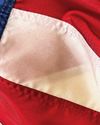CATEGORIES
最新のストーリー

Tesla's Got Trust Issues
As protests against Elon Musk target his electric car company's showrooms, how will progressive buyers respond to feeling that the firm's founder has done them dirty?

'I Was Meant To Be on Doomed Flight'
Just like flight 5342, Sabena flight 548 was carrying U.S. figure skaters and coaches when it crashed into a field in 1961

The Shopping Spree That Built a Museum
How the world-renowned Barnes Foundation's impressive trove of modern art was started on a shoestring

Ben & Erin Napier Are Reviving an Old Vacation Town That's 'Hiding in Plain Sight'
Design duo Ben, 41, and Erin Napier, , are giving Sebring, Fla., a major 39, an boost in season 3 of their HGTV spinoff Home Town Takeover (Sundays).

Wendy Williams Speaks Out After Hospitalization
Wendy Williams's fight against her guardianship continues.

THE SOUND OF MUSIC Secrets from the Set
JULIE ANDREWS AND HER CO-STARS SHARE STORIES ABOUT MAKING THE BELOVED MUSICAL

COSTNER GETS CLOSER AFTER DEMI OSCAR SNUB!
She's the star of his field of dreams

IMPLANT SIGNALS ADVANCE IN WAR ON INFLAMMATION!
A REVOLUTIONARY new implant that delivers tiny pulses of electricity to the vagus nerve may be the next big advance in treating autoimmune inflammatory diseases like rheumatoid arthritis, Crohn's and multiple sclerosis.

Little treats that boost heart health
No need to give up some of your favorite foods or commit to grueling workouts to keep your heart in tip-top shape. A few enjoyable indulgences can protect you from many of the leading causes of cardiovascular disease and let you eat, drink and relax your way to a healthier heart.

Send spring joy soaring!
The sunny days and gentle breezes we've been craving all winter are here. And experts say these tricks will help you enjoy every minute feeling your best.

Growing Together
One year of marriage down, a lifetime to go for the young couple

HALL CAN'T GO FOR OATES NO CAN DO! HA
MONEY has wrecked the 60-year friendship and partnership of the legendary music duo Hall & Oates, sources say, with Daryl Hall totally nixing any chance of mending the rift!

FILM BIZ ROCKS STONE'S MARRIAGE!
Oscar winner Emma Stone has transformed from one of Hollywood's most-loved actresses to a powerhouse movie mogul along with writer-husband Dave McCary, but sources say the La La Land star fears their four-year marriage will collapse under the strain of conquering the film biz!

Taylor & Travis: NEXT BIG STEP!
Taylor Swift and Travis Kelce are proud new puppy parents.

TEDDI TIES UP LOOSE ENDS!
Bravely steels her kids for life without mom

RANDY'S STROKE OF GENIUS!
Ailing icon touring again with help from AI

Blake vs. Justin THE BATTLE CONTINUES!
Blake Lively and Ryan Reynolds don’t seem to trust Justin Baldoni. During a March 6 hearing, the couple’s attorney, Meryl Governski, requested a stronger protective order in a bid to stop their text messages from leaking as the It Ends with Us star, 37, and her husband, 48, prepare to face off against the director, 41, in court.

HALLE&ANGIE: BONDING OVER BRAD!
Actor/director Halle Berry didn't hit it off immediately with her Maude v Maude costar Angelina Jolie.

Eric & Jessica DID HE CHEAT?
Jessica Simpson was going through “the deepest heartbreak of [her] life” when she was writing songs for her new album, Nashville Canyon:

Matt: THE BEN ONLY I KNOW
For more than 40 years, Ben Affleck has depended on the support, advice and love of childhood best friend Matt Damon!

SCARIO'S SOCIAL MEDIA BAN
SOCIAL MEDIA BAN Don’t ask Scarlett Johansson for a selfie!

DENISE'S MONEY WOES
She's not the most frugal person. When her in-laws overstayed their welcome, for instance, Denise Richards rented a townhouse.

Canada's Trump Card
With former central banker Mark Carney succeeding Justin Trudeau as prime minister, has the U.S. president met his match in the trade wars?

AMERICA'S Most Loved BRANDS 2025
THE ULTIMATE MEASURE OF A brand's ability to resonate with consumers is how they make us feel, not just the features their products offer.

State of Love and Trust
Steven Soderbergh blurs the lines between personal and professional in spy thriller Black Bag, its stars tell Newsweek

Ben Falcone
Ben Falcone isn’t exactly known for making kid-friendly projects. His films with wife and frequent collaborator Melissa McCarthy are “R-rated quite often, but I do think there’s a certain sweetness that we usually try to hit.”

Justin Theroux & Nicole Brydon Bloom Are Married!
Justin Theroux and Nicole Brydon Bloom are officially newlyweds.

Simple & Special DINNER DELIGHTS
Bright, beautiful and delicious, these cleverly designed recipes are guaranteed to wow even the pickiest crowd

SECRETS From the New Season
THE ACTOR REFLECTS ON WALKING JESUS' PATH IN THE LAST SUPPER

Where Is Sudiksha Konanki? - SPRING BREAK MYSTERY
INVESTIGATORS SEARCH FOR A PREMED STUDENT WHO VANISHED WHILE VISITING THE DOMINICAN REPUBLIC
